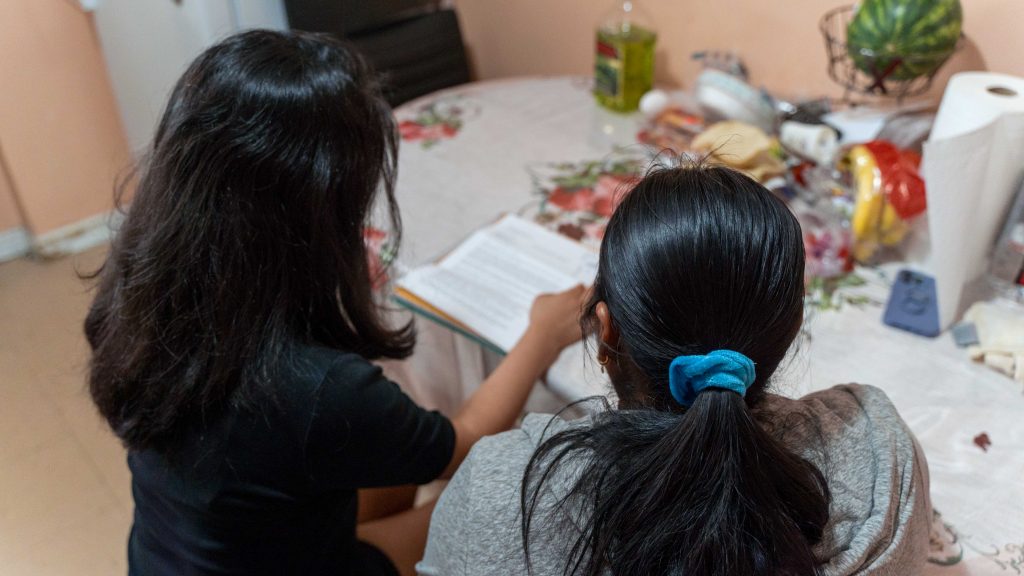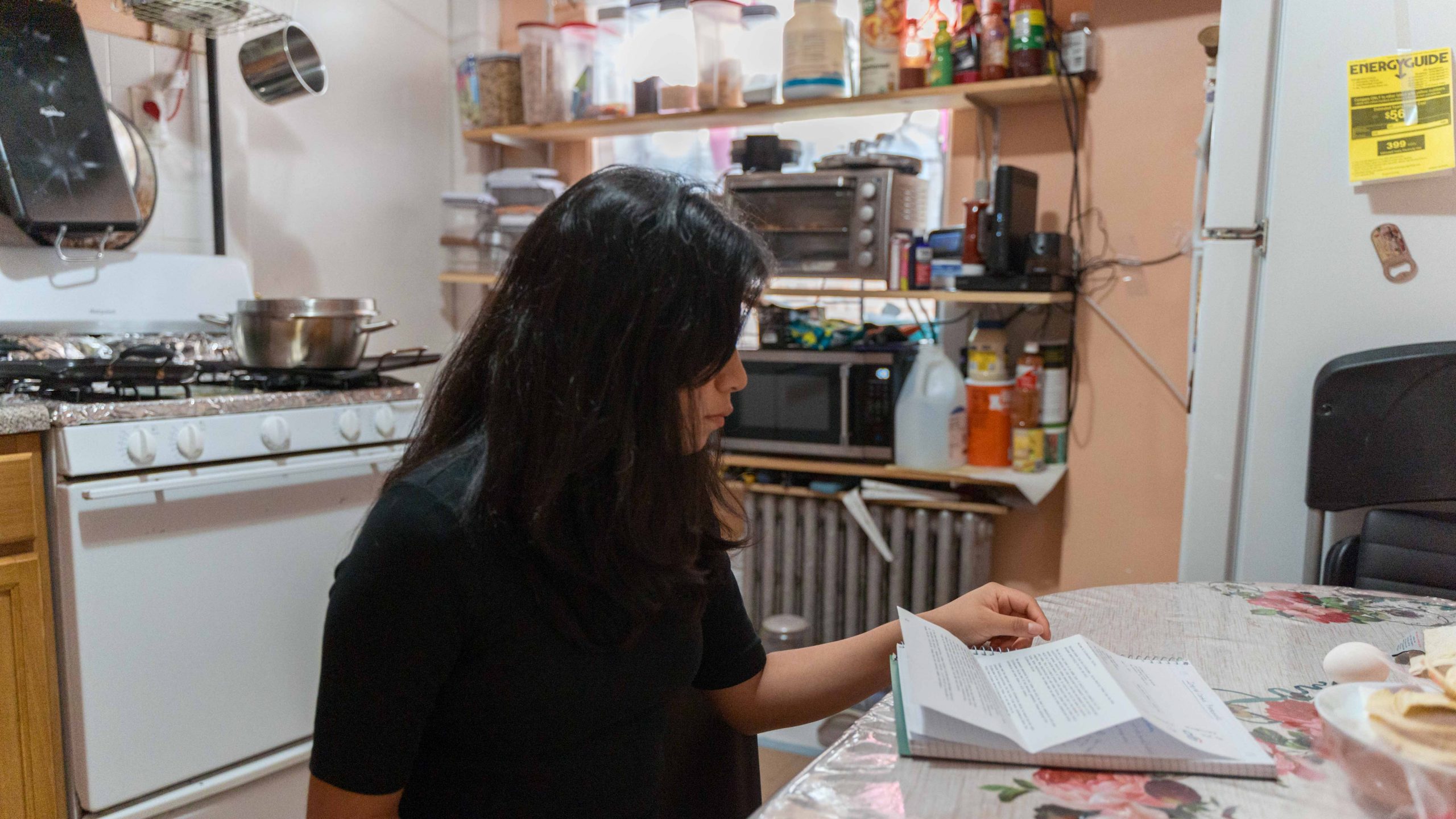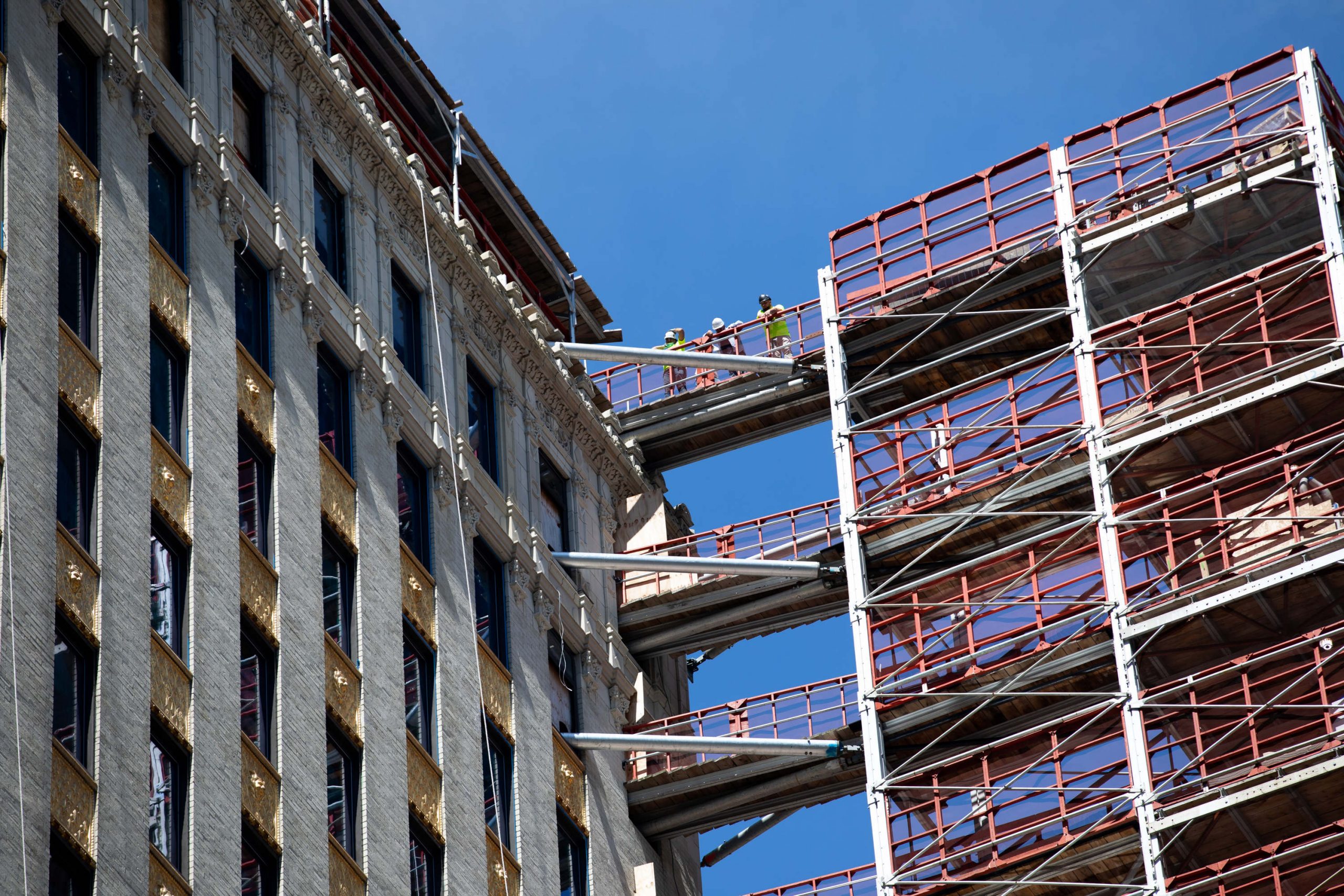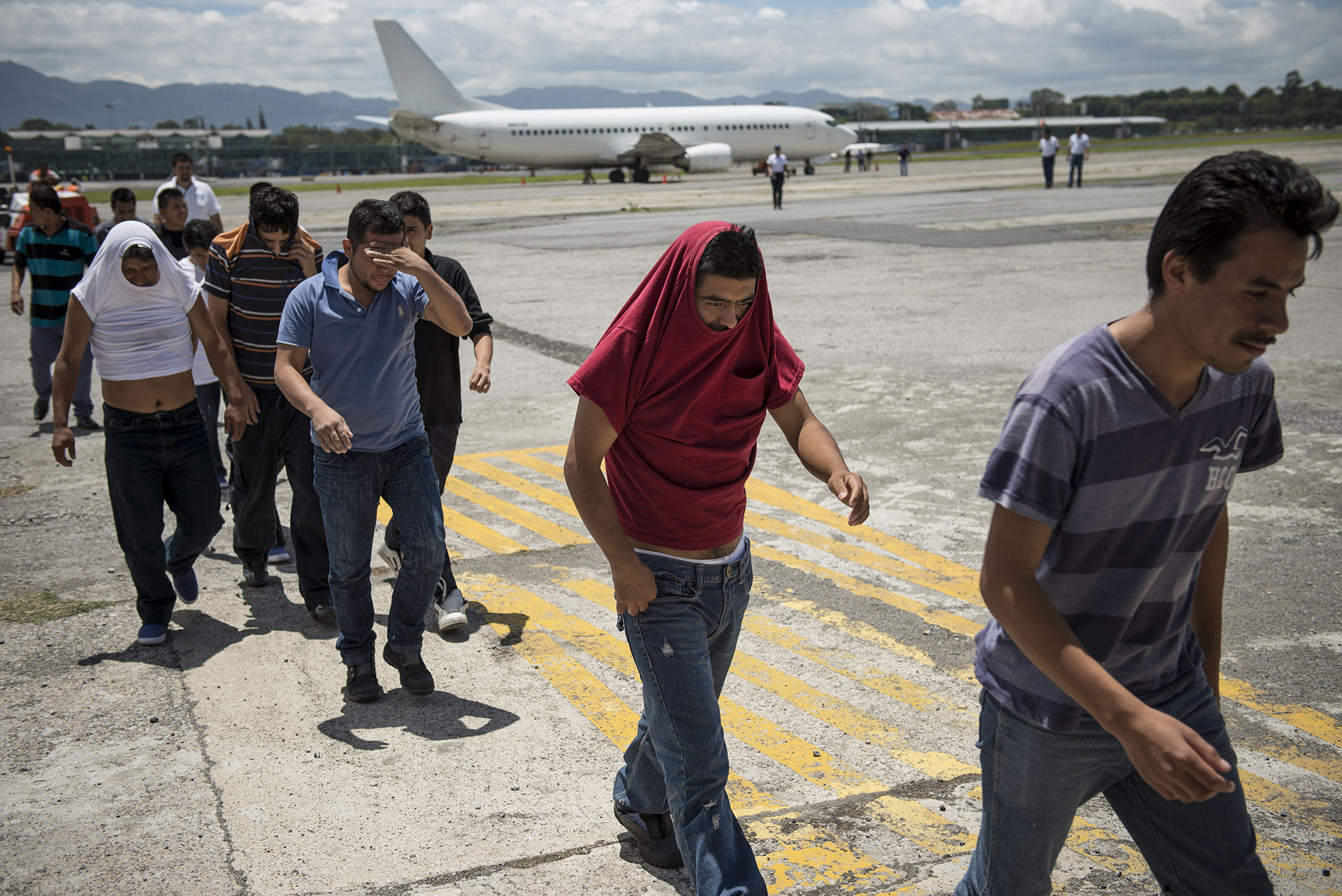Olga Perez felt sick to her stomach when she read the sentence laid out in her mother’s immigration paperwork.
“You submitted a personal statement,” an immigration official from USCIS wrote, “You state: ‘My child has been threatening me, verbally abusive and argumentative.’”
Also Read: Bronx Lawyer Arrested for Defrauding Immigrants and U.S. Government
Perez was the child referenced in the documents, she soon realized. But she had never abused her parents, she said. “I was just so sad,” the 23-year-old said. “It was pretty heartbreaking to read that.”
The statement was part of a legal procedure a Bronx immigration attorney had filed on behalf of Perez’s parents, who had lived undocumented in the U.S. for more than two decades and were seeking legal status. The parents said they were promised work authorization and the ability to travel to and from their native country, Mexico. But they said they had no idea that as part of the process, the attorney would submit false declarations in their name, in which they accused their daughter of abusing them, and once the petition was denied, it effectively put them on ICE’s radar.
“Our papers got into the hands of immigration,” Perez’s mother said in Spanish. “If they find out about us, they’ll come get us.”
It’s not the first time the attorney, Kofi Amankwaa, had filed what’s known as an I-360 petition, a provision of the Violence Against Women Act (VAWA) that is, in part, designed to allow an undocumented immigrant parent of an abusive U.S. citizen child to self petition for a green card. Other families have accused Amankwaa of exploiting this legal process without telling his clients the crux of the application he was submitting on their behalf, nor the dire consequences if the petition was denied: the possibility that a parent could be deported, and a potential record of abuse for the parent’s child.
“He didn’t explain anything,” Perez’s mother said in an interview at their Bronx apartment. “He has harmed us – and he has harmed our daughter too.”
Perez’s parents did not want their names published due to fear that it would harm their ongoing immigration cases.
Allegations against Amankwaa were first reported by NBC 4 New York in April. But almost three months after these claims aired, Documented visited Amankwaa’s office on July 11 and found it is still open, and clients are still seeking legal advice from him.
On a recent Tuesday, more than 15 chairs lined the hallway outside Amankwaa’s office just a few blocks from Yankee Stadium, where his clients would usually sit. But that day, the office was emptier than usual, one of his longtime clients said.
Inside the double doors that led to Amankwaa’s office, about six people met with staff in different rooms, some speaking Spanish to each other. In one room, a stack of folders about a foot high, stuffed with paperwork, crowded a desk. Two plaques addressed to Amankwaa framed one of the walls near the entrance.
Also Read: Migrants Struggle to Find Lawyers to Meet One Year Deadline to File for Asylum
“To express our grateful appreciation, in recognition of your many years of outstanding commitment and dedication in service to the Ghanaian Community in New York City and beyond, May the Lord Keep and Bless you in all your endeavors,” read one of the plaques, from The First Ghana Seventh-Day Adventist Church in the Bronx, dated July of 2015.
When approached by a Documented reporter, a man at the front desk of the office said that Amankwaa was not currently at the office because he was in court, and suggested that it was unclear when he would return to the office.
Amankwaa did not respond to multiple requests for comment for this story. He did not respond to letters dropped off in person and mailed to his office. When reached by phone, Amankwaa declined to comment and hung up.
His son, Kofi Amankwaa Jr., who works as a legal assistant in the office according to multiple families and the man at the office front desk, did not respond to requests for comment.
Immigration attorney Brad Glassman said he has met with about 200 people who were stunned by Amankwaa’s misleading actions. “It appears no one knew what they were signing,” Glassman said. “We’ve never seen anything of this magnitude.”
Once a VAWA petition is denied, immigration authorities can issue a Notice to Appear (NTA) to people like Perez’s parents, Glassman said. That requires them to appear in immigration court and fight a deportation case. “You’ve got families that have been here twenty, thirty years. Never bothered a soul. Paid taxes, raising great families,” Glassman said. “Now, all of a sudden, they’re potentially facing deportation.”

A go-to lawyer in Mexican immigrant circles
The Perez family’s contact with Amankwaa began through word of mouth, from friends and acquaintances who had visited the attorney’s office. They learned that if one of their children had turned 21, Amankwaa may be able to help them.
The parents wanted to work legally in the U.S. and eventually save enough money to retire. So after their daughter, Olga Perez, turned 21 in 2020, they all went to Amankwaa’s office in 2021. “A lot of people said that he was a good lawyer,” Perez’s father said in an interview.
At the office, they spoke with Amankwaa, Jr. — Amankwaa’s son and legal assistant, Perez’s father said. Amankwaa, Jr. said the parents qualified for travel documents. They’d be able to finally go visit Mexico and eventually begin their process for legal residency, he told them.
Amankwaa Jr. said that he was “99.9 percent” sure that her parents would qualify, Perez said. “You’re going to be happy,” Perez’s father remembers Amankwaa, Jr. telling the family. The Perez family paid Amankwaa’s office $6,000 in cash that day, they said.
Norma Palma’s family also heard of Amankwaa through others who had gone to the attorney. Palma, a 26-year-old working as a senior legal analyst, would sometimes accompany her father to the office. But Amankwaa was never open to hearing the family’s questions, she said, and he mixed up his cases. “The interactions with him always kind of rubbed me the wrong way,” she said. “He just took on more cases than he could handle.”
Amankwaa said he would help Palma’s father, who is from Mexico, apply for a kind of relief given to people who had been in the U.S. for more than 10 years, had U.S. citizen children, and would face significant hardship if they returned to their home country. Amankwaa also opened an asylum case for Palma’s father to get work authorization in the meantime, and told her father that he would close that case once his legal status was assured through the other process, according to Palma.
And for some years, Palma’s father trusted Amankwaa. He continued to receive his work authorization in 2018, 2019 and 2020, according to Palma and paperwork she received through a Freedom of Information Law (FOIL) request. But then the authorizations stopped coming. “After that, there was that constant state of worry,” said Palma, whose father did not want to be identified for privacy reasons.
Palma grew suspicious – and her doubts were confirmed when she saw the NBC4 piece that aired in April. “I heard Kofi, and I said, this is not happening,” Palma recalls. She immediately called her dad, who started crying.
Through the FOIL request, Palma also learned that: Amankwaa had submitted a VAWA petition for her father, and falsely named Palma as her father’s abuser – without the family’s knowledge or consent – according to Palma and the documents. The VAWA form was received in 2019, and denied in September of 2021. But Amankwaa never told Palma’s family about that application.
“You never think it’s going to happen to you until it actually does,” Palma said. “We’ve put our trust into him, and he fully violated that.”
Amankwaa also never closed out her father’s asylum case, Palma said. Now, her father, who works as a cook and has lived in the U.S. for about thirty years since he was a teenager, has an immigration court date to hear his asylum case in September. She lives every day with the worry that come September, her father won’t be able to stay in the country, and when she recently turned 26, she said she wasn’t able to fully enjoy it. “I was thinking, ‘is this the last birthday that I’m celebrating with my father?’”
Her mother, who cleans houses, is also undocumented, leaving both parents more stressed than ever that they may get arrested now that the father is on ICE’s radar, she said. In the last several weeks, she’s seen her dad go through anxiety attacks and she hears her mom cry at random moments. Palma usually lives in Jersey City but has been spending most days at her parents’ apartment in Queens, keeping them company.
“It’s a lot of stress, a lot of pressure not knowing what to do.”
Spreading the word about Amankwaa
For the Velazquez family, the worst has already come.
Ricardo Velazquez, Jr. said Amankwaa handed his father a card months ago that would allow him to travel to his native Mexico for the first time in 28 years. His mother, also Amankwaa’s client and undocumented, had already been able to do so. But when Ricardo Velazquez, Sr. returned to JFK Airport on March 11th, immigration officials detained him.
“My mom sent me a text message saying: your father’s going to get deported,” Velazquez, Jr. said.
An immigration officer at the airport told Velazquez Jr. that officials were aware of Amankwaa, and cautioned him to stay away from that attorney. His father’s VAWA case had actually been denied in October of 2022, the officials said, so he wasn’t allowed to travel. But Amankwaa hadn’t told the family.
Velazquez Sr. was then sent to Elizabeth Detention Center in New Jersey, where he was detained for about a month. Then he was deported to Mexico, a place where he has not lived since he was about thirteen.
His mother’s case has also been denied, and she, too, is facing the possibility of deportation.
And like other children of Amankwaa’s clients, Velazquez, Jr. has learned that he was listed as an “abuser” in his parents’ VAWA petitions.
“Ever since then,” he said, “mentally, I haven’t been in the right headspace.”
But Velazquez, Jr. is now taking action. Since he spoke to NBC4 in April, he said he has received requests for help via social media and text message from more than fifty families in similar situations with Amankwaa. Velazquez, Jr. has submitted a complaint to the New York State Attorney General’s Office, and has referred other families to Brad Glassman, the attorney.
“I’m just trying to do my best to try to help my family, but also advocate for a lot of families that were affected,” Velazquez, Jr. said.
Perez also has been organizing, creating WhatsApp group chats and encouraging the families to submit complaints with the state Attorney General’s Office, as she did for her own family. She spends her free time – sometimes staying up until 2 or 3 a.m. – trying to reach more families and encouraging people to distance themselves from Amankwaa, she said. She’s written a complaint to the bar association.
“Basically these parents are paying to be deported – and they don’t even know it,” Perez said. “I didn’t care if I had enough sleep, I didn’t care if I didn’t rest, I just wanted as much information as I could to be out there.”
What’s next for Amankwaa and his clients?
Amankwaa does not have any record of public discipline, according to New York State Unified Court system records. The New York State Attorney General is investigating the situation with Amankwaa, the office told Documented in a statement, and they encourage individuals to report any issues to its office.
State Assemblywoman Catalina Cruz, who represents assembly District 39 in Queens, became aware of the allegations against Amankwaa earlier this year. As of July 10, her office had eight cases of families who believe Amankwaa lied and misled them. Her office connects the families who reach out with an attorney, and with the state Attorney General’s Office, she said. In an interview with Documented, Cruz called Amankwaa’s alleged actions “absolutely egregious.”
“This person has destroyed families,” she said. “What we’re trying to figure out is, is there space for this to go criminal,” Cruz said. “I actually think jail is not out of the question.”
Perez fears that jail is a possibility for her as well, or that her employment prospects could be compromised, because Amankwaa allegedly named her as an abuser in her parents’ immigration paperwork. He also collected her social security number, birth certificate, bank statements, and tax returns, she said.
Having just graduated from Lehman College this year, Perez hopes to one day go into politics or become a lawyer.
“I’m scared that this will affect me,” she said. “I see a lot of ways that this could go wrong.”
The Perez family said Amankwaa’s office returned the $6,000 they paid him, but they don’t expect to get back the approximate additional $4,000 they spent on other immigration legal fees.
Norma Palma said Amankwaa has still not returned the estimated $7,000 her family paid him, and they feel bleak about the prospect of finally securing her father’s legal status.














